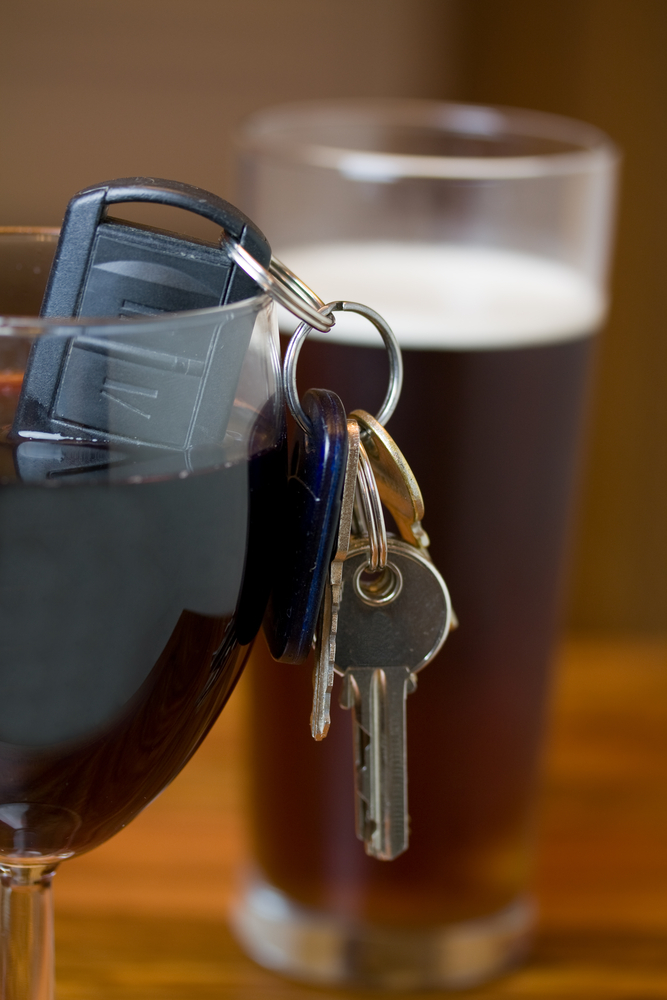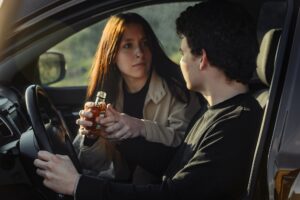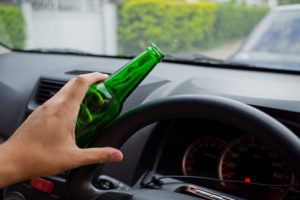
Intoxication manslaughter is a serious charge requiring lawyers who can assemble a solid and knowledgeable defense for you.
In Little Elm, Texas, our law firm marries prosecutorial experience with decades in the criminal defense arena to provide a mature, reasoned case against the state’s accusations.
Intoxication Manslaughter
Under Chapter 49, Section 49.08 of the Texas Penal Code, a person commits intoxication manslaughter if the person:
“(1) operates a motor vehicle in a public place, operates an aircraft, a watercraft, or an amusement ride, or assembles a mobile amusement ride; and
(2) is intoxicated and by reason of that intoxication causes the death of another by accident or mistake.”
Although incidents happen when piloting a plane or boat, such a charge is most associated with the driver who is intoxicated, and an accident resulting in a fatality occurred because of their intoxication. In Texas, this is a second-degree felony.
Enhanced Punishments
If the person who died was a first responder performing their duty, it is an enhanced offense, and the penalty is a first-degree felony.
If more than one person dies or if one person dies and others suffer injuries, and you are convicted of multiple charges, you would serve consecutive sentences. Rather than serving one prison sentence for multiple offenses, you would serve one sentence for one charge, and after that is done, you would serve more years for another charge.
The State’s Case Against Intoxication Manslaughter
In the criminal case of intoxication manslaughter, a prosecutor in Texas must prove beyond a reasonable doubt that you were intoxicated while driving the vehicle at the time of the accident and that it was because of the intoxication that the accident happened, and someone died.
“Beyond a reasonable doubt” means the prosecutor’s case establishes the defendant’s guilt to the degree that any rational person would accept it as fact.
Elements of the Case
The prosecutor will present data, such as the length of tire marks on the road due to a sudden application of brakes, the impact speed based on damage to the body of a car, and other indications that a car accident occurred.
The focus for guilt or innocence for the charge of intoxication manslaughter rests heavily with 1) were you operating the vehicle at the time of the accident, 2) were you operating the vehicle in a public place, 3) were you legally intoxicated at the time of the accident, and 4) did you accidentally or mistakenly by reason of intoxication cause another person’s death?
Intoxication: The state must prove you were intoxicated or did not have normal control of your mental and physical faculties due to a blood alcohol concentration (BAC) level of 0.08% or more or the introduction into the body of a controlled substance, a drug, or a combination of alcohol and drugs, or any other substance.
Standardized Field Sobriety Tests (SFSTs): Police officers give these subjective tests if they stop you because they suspect you are impaired due to intoxication. There are issues with the SFSTs that our defense attorneys could introduce on your behalf.
- The Horizontal Gaze Nystagmus (HGN) Field Sobriety Test looks for involuntary jerking of the eyes when the officer passes a stimulus more than a dozen times in front of your eyes from a foot away. However, multiple conditions can make one’s eyes jerk involuntarily, such as benign paroxysmal positional vertigo (BPPV).
- The Walk-and-Turn looks at the ability of the individual to follow instructions and walk a straight line without appearing unbalanced or unable to do as instructed. Again, many conditions can cause a lack of balance or inattention, such as BPPV or attention-deficit hyperactivity disorder (ADHD).
- The One-Leg Stand requires a person to stand on one foot and count for 30 seconds without losing their balance or putting their foot down. There are a dozen conditions that would make it impossible for a person who is not drunk to successfully complete this test.
- Breathalyzer, drug, and blood alcohol concentration tests: Using devices or blood draws, the state will attempt to prove your blood alcohol concentration was 0.08% or more at the time of the accident or that you had a substance in your body that impaired your mental or physical faculties. There are potential problems with the results of these tests, such as:
- The tests may be administered too soon or too late.
- The equipment may not be calibrated correctly.
- The individual administering the test or interpreting the results may not be qualified.
- Physical conditions such as diabetes or prescription drugs, including some asthma medications, may affect test results.
- Contamination of the device may affect the result.
Defense in a Little Elm Intoxication Manslaughter Case
Proving something beyond a reasonable doubt is hard. It’s meant to be hard for the prosecution to do because, in a criminal case, a person’s future is on the line. As part of your defense, we will introduce reasonable doubt throughout each facet of the case.
In addition to the above-listed elements that the state will address and our Little Elm attorneys will counter, we will gather supportive evidence for your case, including but not limited to eyewitness statements, a history of the hours before the accident for all those involved, visual data, such as still images or videos, and a strong focus on the accident’s cause.
That a person died in an accident is irrefutable. The circumstances leading up to that person’s death are open to question.
The Law Offices of Randall B. Isenberg Can Help in a Little Elm Intoxication Manslaughter Case
Attorney Isenberg and his team of legal advocates benefit as criminal defense attorneys from a history of work as a prosecutor and judge before concentrating on defense.
Having an intimate understanding of how the state approaches an intoxication manslaughter case is a boon to our clients’ cases. If you face charges or think you could face intoxication manslaughter charges, call our office for a free consultation. We want to help.










